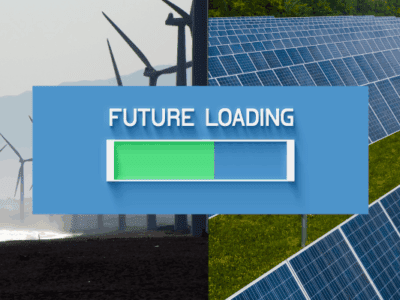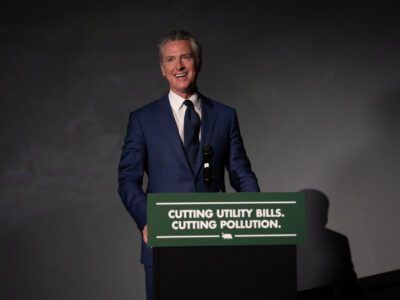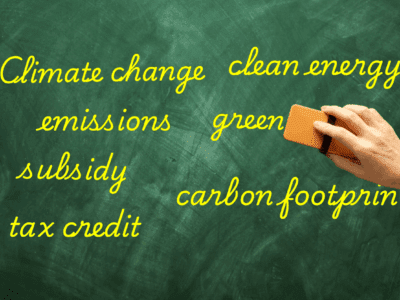Congress and Energy Efficiency – The Tentative Steps of Shaheen-Portman
 Senators Shaheen and Portman have created a bi-partisan bill to promote more efficient use of energy. It appears that they might succeed in getting it through the Senate, but the resulting bill would be missing most of its teeth. Is a toothless tiger better than no tiger at all? Perhaps surprisingly, the answer may be yes.
Senators Shaheen and Portman have created a bi-partisan bill to promote more efficient use of energy. It appears that they might succeed in getting it through the Senate, but the resulting bill would be missing most of its teeth. Is a toothless tiger better than no tiger at all? Perhaps surprisingly, the answer may be yes.
Energy efficiency improvements benefit just about everyone, with the possible exception of the companies that want to sell us more energy. More efficient machines and appliances save money for consumers and businesses. That frees up funds for savings, or education, or higher salaries, or for spending on other consumer items. In other words, greater efficiency can spur economic growth. When government mandates the provision of more efficient products and structures, businesses deliver and consumers reap the benefits. Higher efficiency standards for refrigerators, for instance, have enabled consumers to buy bigger, fanciers ice boxes while using significantly less energy. Better building standards in places like California have allowed people to move into buildings that produce lower energy bills and are often demonstrably more pleasant spaces within which to live and work.
So, why don’t we all just agree to set and live by higher standards of efficiency – national building and appliance standards that would bring out the best from our manufacturers and builders and provide all of those other benefits? Because Congress is what it is – an entity that seems incapable, in its current form, of taking such action. But when Congress can’t act on its own, sometimes it can call of the states to listen to the better angels of our nature.
Here is the recipe:
1. Require each state to consider approving its efficiency standards within a certain period of time.
2. Provide better tools for the states to use, in the form of model efficiency standards and the results of additional research.
3. Rewards states with federal grants if it looks like they are heading down a better path.
With this kind of approach, policy makers in each state will have to listen to better ideas and will become accountable for any failure to act. This will likely produce at least some improvements, as has been proven in the past when Congress required regulators to consider designing utility rates to encourage greater efficiency, and to consider adopting programs to buy back power from customer-installed rooftop solar. Many states responded with innovative programs. Various observers, including myself, have proposed similar strategies for advancing renewable energy policy within the states. In its current form, Shaheen-Portman would use this kind of approach for efficiency. The financial carrot could be bigger, the goals more ambitious, but the bill does represent a push in the right direction.
What is missing is the sense of urgency that is appropriate in the face of accelerating climate change. Rather than tinkering around the edges, it is past time for setting clear goals and committing on behalf of all of us to move swiftly down a better path.
Postscript on July 31:
The authors have now amended the bill to eliminate the proposed grants to the states. They hold out some hope of restoring the incentives during debate on the Senate floor.
Reader Comments
2 Replies to “Congress and Energy Efficiency – The Tentative Steps of Shaheen-Portman”
Comments are closed.







Steve, not sure if this will get to you, but don’t forget that Congress used incentive programs to encourage the better fridges (1970s, wasn’t it) and has done that more recently with light bulbs (and the resulting fight), so it can work directly upon the industry and not necessarily have to go through the states, while I’ve been writing about giving states more authority, so I agree with programs that encourage states to do more (assuming we cannot just directly regulate!). Hope all is well. Sam
From: “Legal Planet: Environmental Law and Policy” <comment-reply@wordpress.com> Reply-To: “Legal Planet: Environmental Law and Policy” <comment+chdpct_5n4u_ffwvwlhz7vs@comment.wordpress.com> Date: Monday, July 29, 2013 12:42 PM To: SAM KALEN <skalen@uwyo.edu> Subject: [New post] Congress and Energy Efficiency The Tentative Steps of Shaheen-Portman
Steven Weissman posted: “Senators Shaheen and Portman have created a bi-partisan bill to promote more efficient use of energy. It appears that they might succeed in getting it through the Senate, but the resulting bill would be missing most of its teeth. Is a toothless tiger bett”